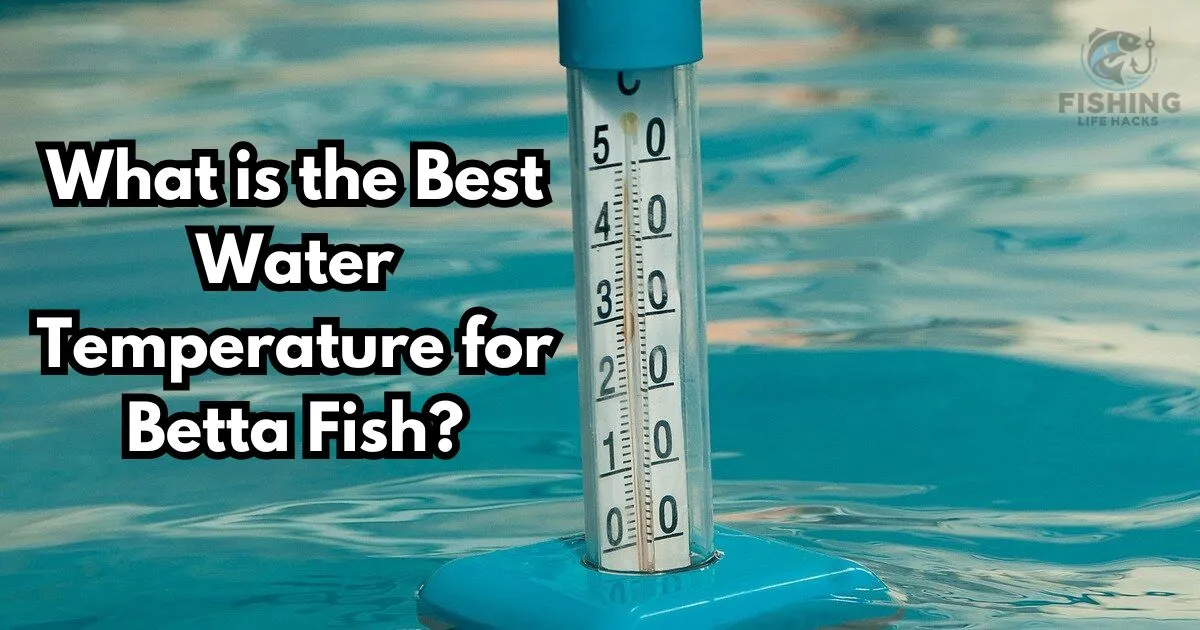What is the Best Water Temperature for Betta Fish?

Betta fish, also known as Siamese fighting fish, are some of the most popular pets among aquarium enthusiasts. With their vibrant colors and flowing fins, they’re truly a sight to behold. But to keep these beautiful creatures happy and healthy, it’s crucial to understand their environmental needs, particularly when it comes to water temperature. So, what is the best water temperature for betta fish? Let’s dive right in!
Betta Fish and Their Habitat
Before we get into the nitty-gritty of water temperature, let’s take a moment to understand where betta fish come from. Native to the warm, shallow waters of Southeast Asia, particularly Thailand, Cambodia, and Vietnam, these fish thrive in environments with a consistent warm temperature. In the wild, bettas are accustomed to water temperatures ranging from 76°F to 82°F (24°C to 28°C).
Maintaining a stable temperature within this range is essential for your betta’s health, as it helps regulate their metabolism, promotes good digestion, and enhances their immune system. Fluctuations outside this range can lead to stress and health issues, which we’ll discuss later in the article.
The Ideal Temperature Range
As mentioned earlier, the ideal temperature range for betta fish is 76°F to 82°F. Here’s why:
- Metabolism: Betta fish are ectothermic, meaning their body temperature is regulated by the surrounding water. When the water is at the ideal temperature, their metabolism functions optimally, leading to better growth, activity, and overall health.
- Behavior: Bettas are naturally more active at warmer temperatures. A well-tempered environment encourages them to swim, explore, and display their natural behaviors. If the water is too cold, they may become lethargic and hide away, which can lead to stress.
- Immune System: A stable, warm temperature helps boost a betta’s immune response. When kept in optimal conditions, they’re less susceptible to diseases and infections.
Temperature Fluctuations
Bettas are sensitive to sudden changes in temperature. Ideally, you should aim for a stable temperature within the recommended range. Here’s what can happen if the temperature fluctuates:
- Below 76°F (24°C): If the water temperature drops below this level, your betta may become sluggish and may even stop eating. Prolonged exposure to cold water can lead to illnesses like ich (a common fish disease) and fin rot.
- Above 82°F (28°C): Conversely, if the water gets too warm, it can deplete oxygen levels and cause stress. High temperatures can also accelerate the spread of bacteria and parasites, making your betta more prone to disease.
Measuring Water Temperature
To maintain the perfect environment for your betta, you’ll need to monitor the water temperature regularly. Here are some tips:
Use a Reliable Thermometer
Invest in a good-quality aquarium thermometer. There are various types, including digital, glass, and stick-on thermometers. Make sure to place the thermometer away from the filter or heater to get an accurate reading.
Positioning the Heater
If you’re using a heater, make sure it’s positioned correctly in the tank. A heater that’s too close to the filter may cause uneven heating, leading to hot and cold spots. Ideally, place the heater near the filter intake to help circulate warm water evenly throughout the tank.
Regular Checks
Make it a habit to check the water temperature daily, especially during seasonal changes. This will help you catch any potential fluctuations before they affect your betta’s health.
Adjusting Water Temperature
If you find that the water temperature is outside the ideal range, it’s essential to take action promptly.
Heating the Water
If the water is too cold, gradually increase the temperature by turning up the heater. Avoid making drastic changes, as rapid temperature increases can shock your fish. Ideally, aim for a rise of no more than 1-2°F (0.5-1°C) per hour.
Cooling the Water
If the water is too warm, here are a few methods to cool it down:
- Remove the Heater: If your heater is malfunctioning, turn it off or remove it temporarily.
- Add Ice Packs: Place sealed ice packs or bags of frozen water in the tank. Ensure they are not directly touching the fish to avoid shocking them.
- Use a Fan: Positioning a fan above the aquarium can help cool the water through evaporation. Just be careful to monitor the humidity levels in the room.
Additional Tips for Betta Fish Care
Tank Size
Betta fish thrive in environments that provide enough space to swim around. A tank of at least 5 gallons is recommended. Larger tanks are easier to maintain, allowing for stable water conditions.
Filtration
A good filtration system helps keep the water clean, which is essential for your betta’s health. However, be mindful of the water flow. Bettas prefer calm waters, so look for a filter with adjustable flow settings or use a sponge filter to reduce turbulence.
Water Quality
Maintaining high water quality is vital for your betta’s health. Regularly test the water for pH levels (aim for 6.5 to 7.5), ammonia, nitrites, and nitrates. Regular water changes (about 25-50% weekly) help keep the water clean and safe.
Feed Appropriately
Ensure you’re feeding your betta a balanced diet, including high-quality pellets, freeze-dried food, and occasional live foods. Overfeeding can lead to poor water quality, which can be detrimental to your fish’s health.
Frequently Asked Questions
Conclusion
In summary, maintaining the best water temperature for your betta fish is crucial for their well-being. The ideal temperature range of 76°F to 82°F (24°C to 28°C) ensures they thrive, remain active, and stay healthy. Regular monitoring, proper heating, and creating a stable environment are key to keeping your betta happy. By paying attention to these details, you’ll create a vibrant and healthy aquarium that showcases your stunning betta fish.






